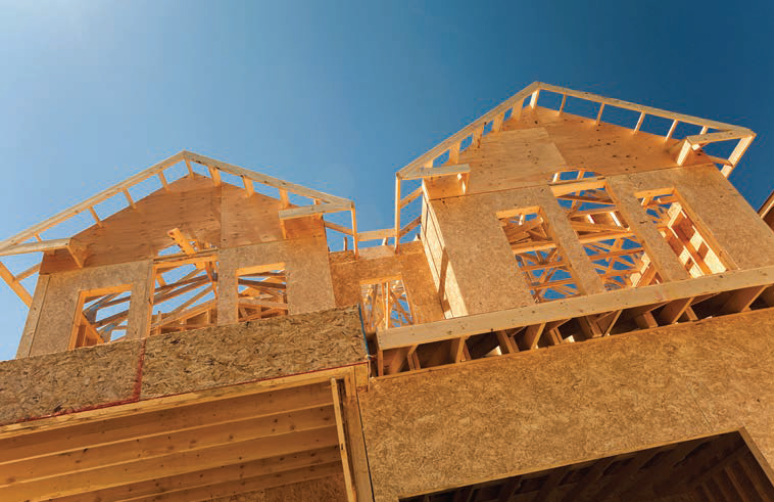By Brice Wallace
With growing sales, rising prices, good affordability and capital returning to the market, Salt Lake City is a real estate boom town, according to a prominent real estate consultant.
Speaking recently at the Urban Land Institute Utah (ULI) “Trends” conference, Kenneth Perlman, principal at John Burns Real Estate Consulting, said Salt Lake City is among 10 such boom towns across the country. Others include Denver, Raleigh and Dallas.
“I used to say that Salt Lake City was the best-kept secret in the nation in the housing market. It’s not anymore. It’s not a secret,” Perlman told the crowd. “Nationally, you guys are playing in some pretty big circles right now.”
Helping the city’s situation has been good job growth, especially in high-wage sectors, he said. Utah’s job growth has averaged 3 percent during the past few years, compared with 1.7 percent nationally. And 29 percent of Utah jobs are in high-paying sectors, compared with 18 percent in the U.S.
“So, really good job growth, really good wage growth,” he said.
{mprestriction ids="1,3"}However, Utah also has seen its unemployment rate remain low compared to the rest of the nation, and that could be a trouble area going forward, he said. “That’s one of the reasons why we think it’s going to be tough to sustain this job pace going forward. Everybody has a job,” Perlman said.
“Now, that may cause a problem going forward. We’re looking for a little bit of a slowdown in the economy because, quite frankly, you don’t have enough people.”
Another potential for trouble lies in housing affordability, he warned. While it’s “really not too bad” right now, “it’s something you clearly want to watch,” Perlman said. Denver, for example, is experiencing a slowdown as a result of higher housing costs.
“While you are part of the new boom towns, there are some boom towns out there that are starting to get a little bit frothy,” Perlman said. “What’s made them great, including affordability, is being challenged everywhere. Don’t let that happen here.”
Demographics are driving certain elements of Utah’s housing market, he said. “Move-up” families in their peak earning years are selecting Salt Lake City for its affordability and lifestyle. It has a lot of young families, compared to the rest of the nation.
“So, when we say, ‘Get ready for household formation,’ you’re getting ready for those in spades in Salt Lake City,” Perlman said. “You are really on the cusp of a young, active-adult buyer segment, and it’s coming to your market very, very quickly.”
Perlman predicted 10 percent growth for single-family-home permits in 2017 in Salt Lake City and 12.5 percent in 2018. It will slip to 5.6 percent in 2019 and slow even further if the national housing market is effected by a downturn — he described it as a “hiccup” — in 2020.
Nationally, of the 70 markets his consulting firm studies for sales pace, price growth and buyer demand, “the real estate space, both nationally and locally, are in a really great place. It’s a really exciting time to be in this industry. We can’t find one market in the country that we would call poor right now,” Perlman said.
He expects things to continue until 2020, when that hiccup might hit.
“If there is a recession over the next three to four years, it’s not going to be caused by housing,” he said. “Over the next three to four years, if something happens, it’s not going to be caused by real estate. We’re not overbuilding the market, we’re not lending like crazy, and, if anything, housing is a really good story for the nation right now.”
Nationally, markets also are being driven in part by demographics. A “new wave of retirement” by people born in the 1950s and early ’60s is causing “an explosion of retirees that will continue over the next decade, so think about that when you’re designing your communities,” he told the crowd.
Contributing to changes also are people born in the ’70s who want to have less “stuff,” and people who desire an urban lifestyle in the suburbs.
“What we’re looking at going forward … is pretty strong, pretty steady growth,” Perlman said of the housing industry overall. “And we’ve been calling for this hiccup in about 2020, and unless there’s another Lehmen Brothers-like event — which will not come from our industry — we can’t find any reason for another major downturn.”{/mprestriction}








